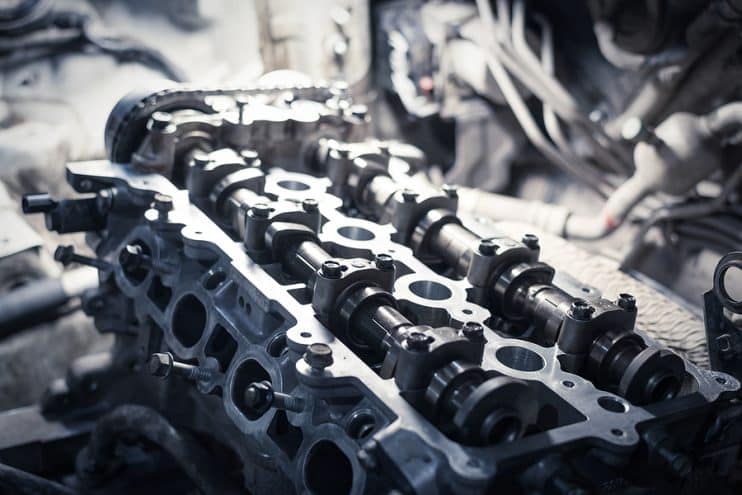
The cylinder head is a crucial component in any internal combustion engine. It’s responsible for optimising your vehicle’s performance, efficiency, and power output.
Housing the intake and exhaust valves, along with other critical components which control the intake and exhaust processes, the cylinder head maximises airflow to create the ideal air-fuel mixture for combustion.
If your cylinder headstarts to fail, you’ll notice a significant decline in your engine’s performance. But if you’re able to spot the signs of a failing cylinder head, you can take steps to have any issues fixed early on, and prevent more costly repairs further down the line.
Table of contents:
- What are the signs and symptoms of a failing cylinder head?
- Why is the cylinder head essential, and what does it do?
- Why do cylinder heads fail?
- What is the Expected Lifetime of a Cylinder Head?
- How Much Does a Cylinder Head Cost to Replace?
What are the signs and symptoms of a failing cylinder head?
A failing cylinder head can result in various engine problems, including overheating, poor performance, oil leaks, coolant leaks, and smoke. Here are some symptoms of a failing cylinder head and their potential causes:
Overheating
A common sign of a cylinder head issue is overheating. This can happen when the cylinder head warps or cracks, slowing down or stopping coolant flow and causing the engine to overheat. Overheating can also cause damage to other engine components like the head gasket, pistons, and valves.
Poor engine performance
A clear sign of a cylinder head problem is poor engine performance. This could be due to a fractured or broken cylinder head in a diesel engine, which hinders efficient fuel combustion. As a result, you may experience reduced power, lower fuel efficiency, sluggish acceleration, and difficulty climbing inclines.
Engine misfiring
Although engine misfiring isn’t a direct sign of a failing cylinder head, it can happen when there’s a loss of compression due to a cracked cylinder head. Some owners may find that their engines misfire as a result.
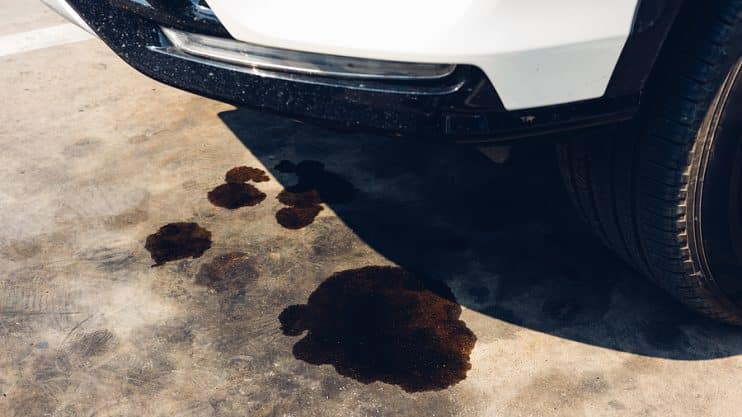
Oil leaks
A cracked cylinder head can lead to oil leakage from the engine. You may notice the oil light on your dashboard lighting up, indicating low oil pressure. When this occurs, check under the bonnet for signs of engine oil near the cylinder head. Internal oil leaks can contaminate the coolant and create more issues, so it’s worth checking out immediately.
Coolant leaks
The cylinder head holds the coolant, so a cracked head can cause coolant leaks. Look for puddles beneath your car when parked or an overheating warning on the dashboard. Coolant leakage can potentially contaminate the oil.
Smoke
White smoke from the engine can indicate a severe cylinder head failure, where exhaust gases escape directly into the engine compartment. This can also happen if coolant seeps into the combustion chamber and burns with the fuel. Blue smoke can indicate oil burning within the engine and may be caused by worn or damaged valve seals or guides.
Why is the cylinder head essential, and what does it do?
The cylinder head has several essential functions within the engine. It seals the top of the combustion chamber and houses all the critical components that regulate the flow of air and fuel, in and out of the cylinders.
The cylinder head also has passages for coolant, oil, and combustion gases and helps cool down the engine. Finally, it houses critical engine components, including valves, injectors, and the camshaft.
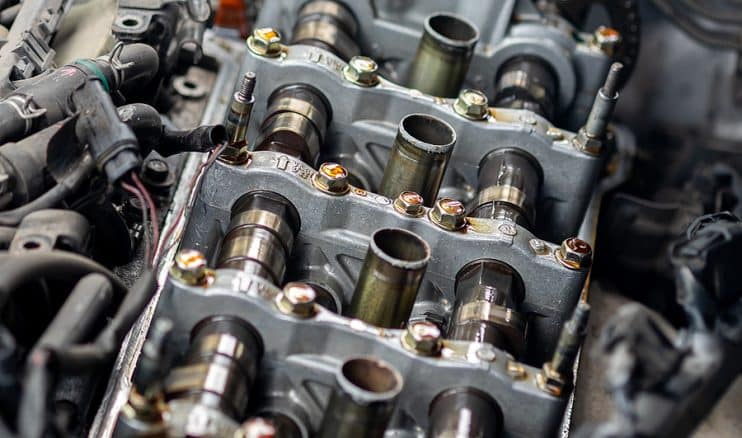
Why do cylinder heads fail?
Harsh weather conditions, age, and poor maintenance can damage cylinder heads. When any of the following factors occur, the cylinder head can develop issues:
- A warped cylinder head, caused by uneven mating surfaces, overheating, bolt forces, or blown gaskets, results in problems like coolant and oil leaks, poor function, and loss in cylinder compression.
- Cracked cylinder heads can result from temperature fluctuations and wear and tear, ranging from tiny cracks to wide openings causing oil, coolant and exhaust gas leaks.
- Cylinder head components such as valves, seals, guides, and seats can experience issues like drying out or wear and tear, resulting in problems like oil leaks and poor function.
- Specific cylinder head problems, like factory-related voids leading to a porous head, may remain hidden until later, causing coolant and oil leakage, overheating, and other issues in the head and engine.
What is the Expected Lifetime of a Cylinder Head?
Cylinder heads are designed to last the vehicle’s lifetime, typically around 200,000 miles or more. Usually, the valves or gaskets linked to or within the cylinder heads fail first.
However, how long a cylinder head lasts depends on many factors, such as your engine type, driving style, maintenance, and environmental conditions. It can also depend on the make and model of your vehicle.
How Much Does a Cylinder Head Cost to Replace?
The cost of replacing a cylinder head can vary depending on several factors, such as the make and model of your vehicle, the type of engine, the complexity of the job, and the average prices in your region. Whether you’re opting for new or used cylinder heads can affect the cost too.
On average, expect to pay anywhere from £500 to £1500 or more for replacing a cylinder head, including the cost of parts and labour. But these are rough estimates. Always get a few quotes from different mechanics to compare prices and services, giving you plenty of choices and a better idea of what will likely cost you.

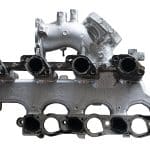



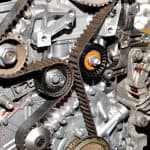
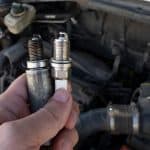
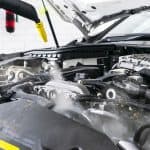

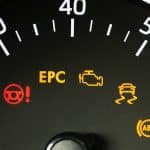
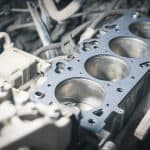

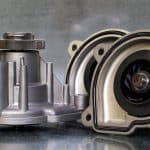
.png)